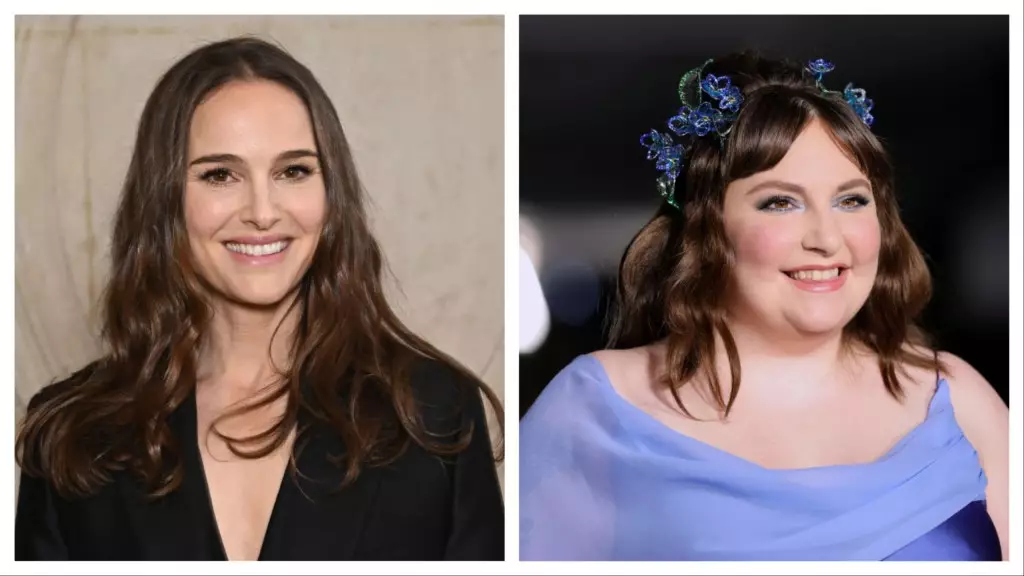In recent years, the realm of romantic comedies has witnessed a refreshing trend: age-gap narratives steering the genre in bold new directions. A prime example of this evolution is the upcoming film “Good Sex,” which features acclaimed actress Natalie Portman and is both penned and directed by the talented Lena Dunham. This collaboration has generated excitement in the entertainment industry, and it speaks volumes about the shift in storytelling that is gaining traction amongst mainstream audiences.
“Good Sex” centers on a compelling character named Ally, portrayed by Portman. After a decade spent in an unfulfilling marriage, Ally stands at the crossroads of her life as she approaches her 40th birthday. With the unwavering support of her best friend, she reluctantly dives back into the fervently chaotic New York dating scene. The scenario grows intricate as Ally finds herself entangled in two very different romantic escapades—one with a youthful Brooklyn hipster and another with a sophisticated man in his 50s. This peculiar love triangle serves as the crux of the narrative, reflecting emotional conflicts that resonate widely as scholars and fans alike relate to Ally’s journey of self-discovery and affirmation.
The duality in Ally’s romantic pursuits poses significant questions about modern relationships and what it means to seek personal happiness amidst societal expectations. The film promises to weave together humor and introspection, challenging character norms and inviting audiences to confront their preconceptions about love and compatibility. Rather than merely focusing on the ticklish aspects of romantic tension, “Good Sex” aspires to delve deeper into issues of identity, vulnerability, and the often turbulent journey of finding one’s true self while navigating conflicting emotions.
The partnership of Portman and Dunham is particularly noteworthy, as both have made significant strides in their respective careers. Portman, known for her versatile roles and award-winning performances, has cited Dunham’s earlier work, specifically “Tiny Furniture,” as a source of inspiration. Their shared vision for “Good Sex” aims to break conventional boundaries, offering fresh perspectives on relationships and the challenges they entail. Moreover, the producers’ intent to blend heart and humor sets high expectations for this cinematic endeavor, which is backed by established names in film finance and production.
As represented by major industry players like CAA Media Finance and Film Nation Entertainment, “Good Sex” is poised to make waves both domestically and internationally. With its premiere anticipated at the European Film Market, the film could spark conversations around the implications of age disparity in modern love stories. As audiences eagerly await its release, “Good Sex” exemplifies a shift in narratives that not only entertains but also invites deeper contemplation on the intricacies of love, identity, and the choices that shape our romantic experiences. This film represents more than just a romantic comedy; it embodies a cultural commentary on the journey toward self-definition at various stages of life.

